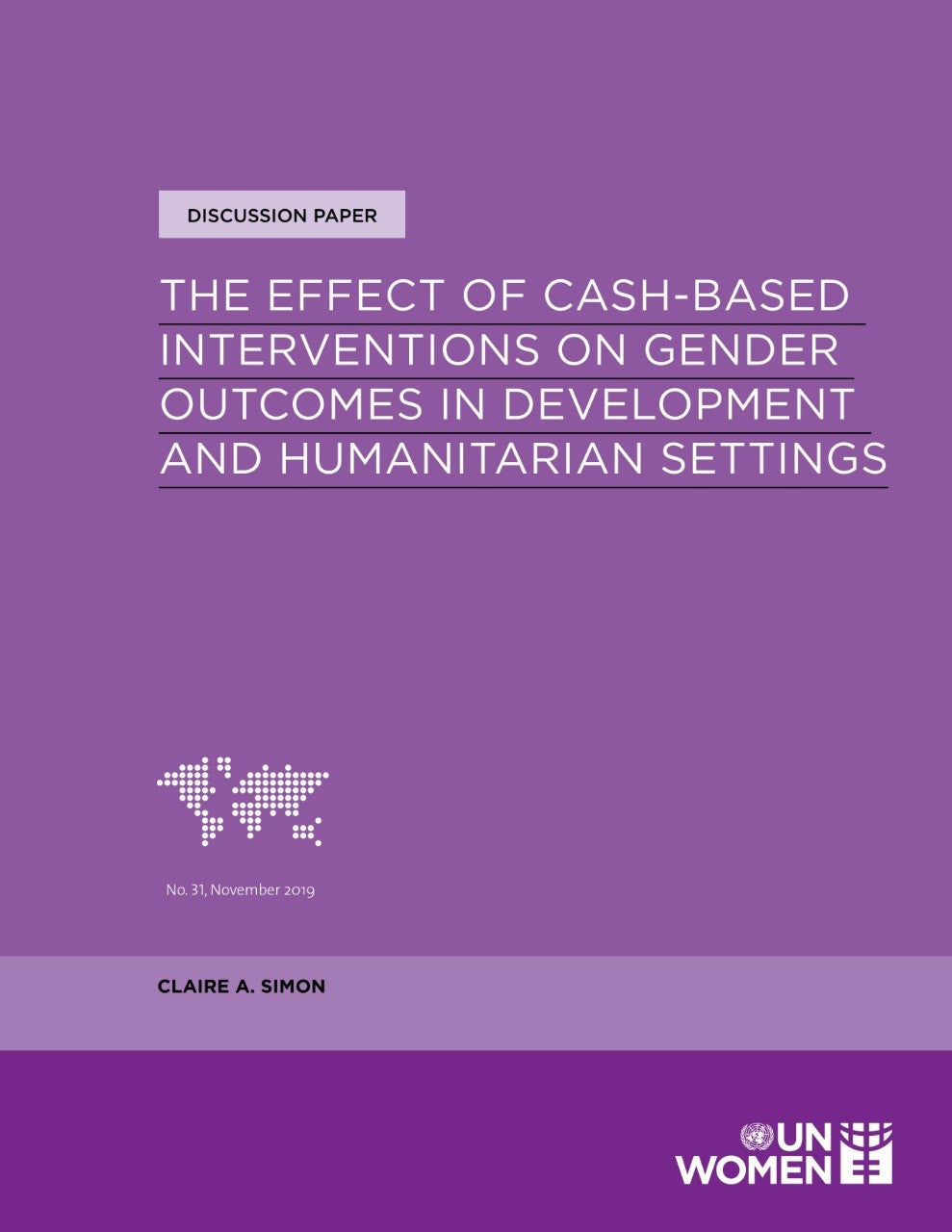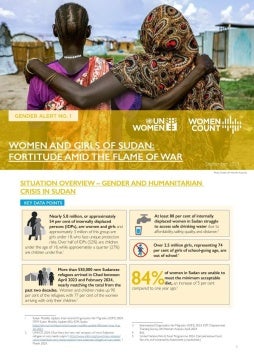The effect of cash-based interventions on gender outcomes in development and humanitarian settings
Cash transfers are often considered a gender-sensitive development tool because women have traditionally been the target for large social cash transfer programs. However, targeting women does not automatically yield favourable outcomes for women and girls. While there is emerging evidence from the development sector to suggest that cash transfers can positively impact women and girls across an array of protection and empowerment dimensions, the results are often mixed and poorly understood. The evidence base on gender and cash in humanitarian settings, where the use of cash is on the rise, is even more limited. Without proper gender considerations, there is a concern that cash transfers may fail to reach those left furthest behind, potentially limiting rather than generating opportunity for greater gender-transformative change.
This paper begins by presenting an overview of the latest research on cash transfers, gender protection, and empowerment outcomes. It continues by discussing some of the programme design features to consider when seeking to improve gender outcomes. Finally, the paper concludes with a set of research questions that can help shape future research and practice in this area.










